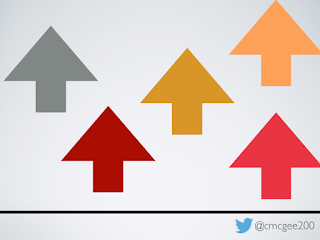I firmly believe that in every human interaction we have the choice and ability to EMPOWER, INSPIRE others.
So what does that have to do with learning and schools. Well, imagine this, every interaction we have with our students matters. Check out this video:
Every opportunity, every interaction, every word that is uttered, it either adds to, multiples, or takes away and divides.
I was recently at a school and some of the words and phrases I overheard were:
- Don't Touch my things...
- Pick your lab partner because I don't like to change seating charts.
- Can you come back in 5 minutes this is the boring part.
- I will eventually get to know kids. I can't get behind the pacing guide.
- If you can't get the work done we will help you..
- You know it's (blank) and then (blank)....
Think about those words and phrases listed above. Do they inspire something better for others?
What we do each day matters, and more importantly every interaction (face to face, through email, over the phone, etc.) matters.
Embrace each day as a choice to either ADD TO, Multiply, Create, EMPOWER, Inspire:
Fill buckets, post 'UP' arrows, whatever you need to do to remind yourself about the impact you're making.
Or Belittle, Subtract, Divide, Quiet, Hush, Make less, Post down arrows. Just be careful you never know the ramifications of your actions:
Jerry Seinfeld once had a portion of a stand up routine around the difference between Up and Down:
He states "When you're little your whole life is up" as adults we're always trying to put others (kids especially) down.
I ask you choose differently today, tomorrow, and every minute of every day.
Choose Possibility, creativity, and wonder.....












